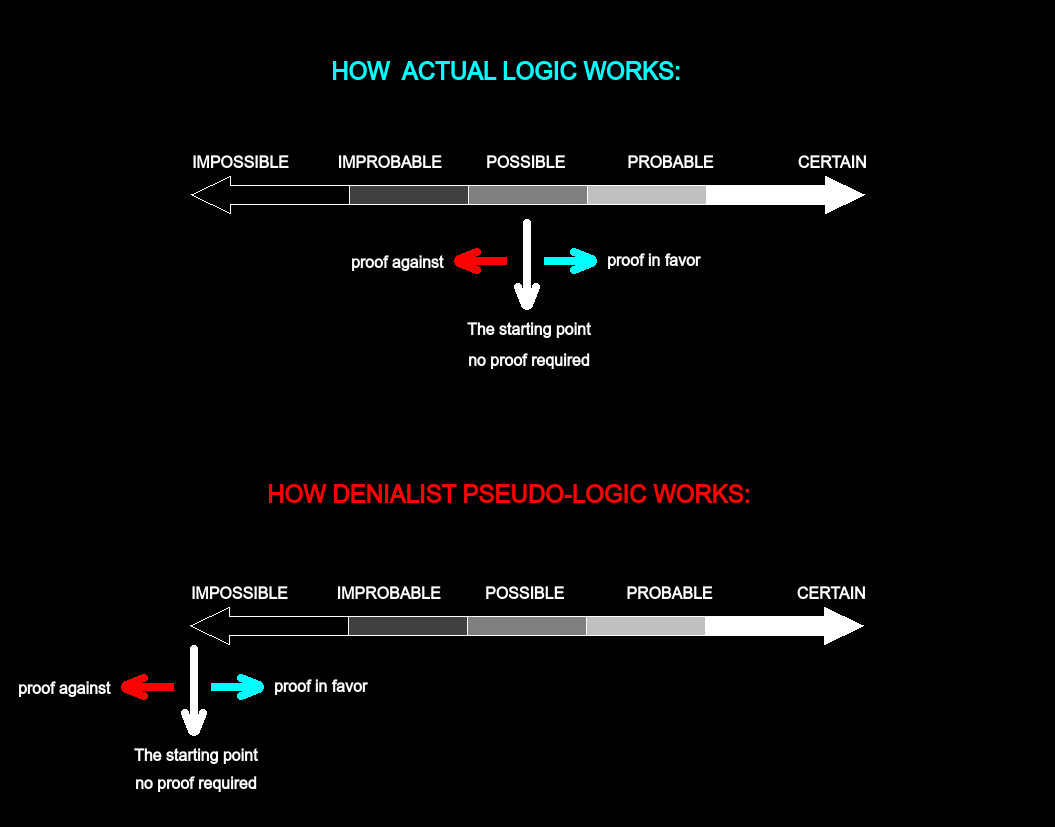Default Denial Logic
The Default Denial Logic (D.D.L.) is a fallacious logic system at the basis of pseudo-skepticism and many conspiracy denialist arguments.
Its fundamental premise is that the "default" state of logic is *false*, meaning that any statement is automatically false unless proven otherwise; as a result, negative statements are never required any proof, as if they weren't "real" statements, while neutral ones must be "proved" as if they were positive claims.
This goes against conventional logic, in which the default state is neutral, and negative statements are perfectly equipollent to positive ones, both equally requiring proof.
In other words, in conventional logic, any statement starts from being neutral (possible/plausible) and only becomes either "true" or "false" in presence of either favorable or contrary evidence. Instead, in D.D.L., any statement starts from being false and only becomes either "true" or "false" in presence of either favorable or contrary evidence.
This kind of fake logic provides the user an easy way out of any inconvenient debate while mantaining an appearance of "rationality" or "skepticism", and enables many logical fallacies and rhetorical devices such as: hiding negative claims and ideologies (Projective Identification), presenting mere hypothesis as "claims" (Claimbulking), demanding special pleading for negative claims (Denialist Pleading), pretending "you can't prove a negative" (Unprovable Negative Fallacy), demanding proof as a precondition for research (Quick Science Fallacy).

